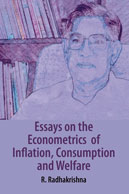New Releases...
Download Catalogue...
Download Excel Data
Download PDF Catalogue
You will get a Excel file with detail about catalogue.
You will get PDF file with detail about catalogue.
Detailed info...
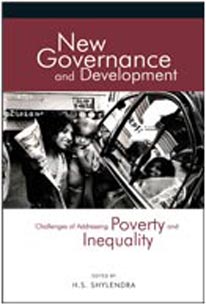
Hard-cover • 2009
Pages: 364
ISBN: 9788171887286
INR 995.00
+ Add to Cart
Publisher:
Academic Foundation
New Governance and Development
Challenges of Addressing Poverty and Inequality
H.S. Shylendra
About the Book
<p>There is witnessed an emergence of a new paradigm of governance alongside the process of globalisation. Pluralisation of state is the major feature of the new governance. The state is expected to shed its pre-eminence over development and resources. The three actors of development, state, market and civil society have to work together for arriving at a synergetic solution to developmental problems. The harmony is to be attained, guided by the principles of good governance like participation, accountability and transparency. As the contours of the new paradigm and its impact unfold rapidly, there is a growing debate over its relevance in developing countries like India. While the proponents see it as a newer mantra of development complementing the process of globalisation, serious concerns have been raised by the critics over the ramifications of adopting the neo-liberal path of development as advocated by the new paradigm. The critics believe that, if adopted whole hog, there could be many detrimental effects of the new paradigm for attaining a more inclusive development. Moreover, the harmonisation expected among the three actors of development in terms of their goals and actions may prove to be elusive given many interest conflicts.</p>
<p> </p>
<p>The book is an attempt to understand critically the nature of the new governance, and identify some of the key challenges it may pose at different levels for addressing basic developmental problems like poverty and inequality. There are contributions in the book from scholars and experts from academia, civil service and NGO sector giving a cross sectional perspective about the emerging paradigm. The book will be of relevance to researchers, donors, practitioners and students interested in understanding the links between governance and development.</p>
About the Author(s) / Editor(s)
H.S. Shylendra is a Professor at Institute of Rural Management Anand (IRMA). He has done his Ph.D in Economics at the Institute for Social and Economic Change (ISEC), Banga-lore. His areas of interests are rural development, sustainable livelihood, microfinance, rural finance and governance. He has published a book: Diversification and Sustainable Rural Livelihood (2005), two monographs and several papers in well known journals. He is a member of the editorial team of International Journal of Rural Management. He has carried out consulting and research assignments for many NGOs and other organisations like NABARD, RBI, SBI, SIDBI, SDC and Development Fund.
Contributors
<p><strong>Kishore Bhirdikar</strong> holds a M.Phil. from Pune University. He is currently working as a research associate in the MFMI Chair in Microfinance at IRMA since November 2004. Prior to joining IRMA, he worked with National Institute of Bank Management and BAIF Development Research Foundation. His research interest includes rural development, informal sector labour and microfinance.</p>
<p> </p>
<p><strong>S. Chandrasekhar</strong> is Assistant Professor at the Indira Gandhi Institute of Development Research, Mumbai. He completed his Ph.D. in economics from The Pennsylvania State University. He has been awarded the Fred H. Bixby Fellowship (2007-2008) by the Population Council. His current research focuses on trends in poverty among Indian children and adolescents and the multidimensional aspects of urban poverty.</p>
<p> </p>
<p><strong>Jos Chathukulam </strong>is the Director of Centre for Rural Management, Kottayam, Kerala. After obtaining Ph.D in Development Administration from ISEC, Chathukulam worked for two years as a research associate at the School of International Relations, Mahatma Gandhi University, Kottayam. Since the establishment of the Centre for Rural Management in 1990, he has been serving as its Director. His areas of interest include rural development, rural local government and decentralisation.</p>
<p> </p>
<p><strong>T.M. Joseph</strong> is currently Reader and Head, Department of Political Science, Newman College, Thodupuzha, Kerala. He did his doctoral studies at the ISEC, Bangalore. Dr. Joseph is the recipient of the Fr. T.A. Mathias National Award for Innovative College Teachers (2001). He is interested in studies of decentralisation, ethnic relations and electoral systems. He has authored a book and several research papers in leading journals.</p>
<p> </p>
<p><strong>Anirudh Krishna</strong> has a Ph.D. in Government from Cornell University and masters degrees in International Development and Economics from Cornell University and the Delhi School of Economics, respectively. He had authored and co-authored many books. His current and previous research interests include social capital, comparative decentralisation, political participation, poverty reduction and local institutional development. Krishna is currently Assistant Professor of Public Policy Studies and Faculty Advisor of Hart Fellows Program at Duke University.</p>
<p> </p>
<p><strong>Aswini Kumar Mishra</strong> is an ICSSR Doctoral Fellow, Nabakrushna Choudhury Centre for Development Studies, Bhubaneswar, Orissa. His research interests include economic reform and social security, measures of human development and correlates and determinants of poverty.</p>
<p> </p>
<p><strong>M.V. Nadkarni </strong>retired as the Vice-Chancellor of Gulbarga University. He was earlier a Professor of Agricultural Economics and Ecological Economics at ISEC, Bangalore. He is a co-founder and acting Vice President of the Indian Society for Ecological Economics. He is author of nearly 100 research papers published in professional journals and also 22 books and major reports. Currently, he is a Honorary Visiting Fellow at ISEC.</p>
<p> </p>
<p><strong>Reema Nanavaty</strong> having succeeded in joining the Indian Administrative Service, stepped out to directly work with the poor women of the Self Employed Women’s Association (SEWA), Ahmedabad. She was elected as SEWA’s General Secretary in 1999 and currently manages US$ 6 million strong economic activities of SEWA through a federation of 100 cooperatives, 9 district associations, and a direct outlet of 12000 artisans. She has written several papers on women, water and rural development based on her experience with SEWA.</p>
<p> </p>
<p><strong>Sakti Padhi</strong> is Professor of Economics, Nabakrushna Choudhury Centre for Development Studies, Bhubaneswar, Orissa. His research interests include political economy of agrarian changes, rural labour markets, health economics, poverty and human development. He is a member of the Poverty Task Force of the Government of Orissa.</p>
<p> </p>
<p><strong>Jitesh Panda</strong> is a Development Practitioner with over 13 years of experience in microfinance and livelihood sector in India. After having worked for over nine years with a field based NGO called Vikash, Panda promoted Shristi, an NGO working on livelihood and microfinance issues in Orissa. Besides being on the Board of Shristi, Panda is at present working as a Senior Consultant with Catalyst Management Services, Bangalore. Panda holds a Post Graduate Diploma in Rural Management from IRMA and has done his degree in Fishery Science from Orissa University of Agriculture and Technology.</p>
<p> </p>
<p><strong>Aditi Pany</strong> works with Ashoka, a global not-for-profit organisation, on an initiative that catalyses business-social partnerships to address critical needs of low income communities. She has completed her Masters in Economics and Bachelor of Engineering from the Birla Institute of Technology and Science (BITS), Pilani. In addition to writings on governance, Aditi has contributed to a report titled, Social Safety Nets in India: Contemporary Issues for the International Food Policy Research Institute. She was awarded the Global 30 under 30 for All Round Leadership in 2005.</p>
<p> </p>
<p><strong>D. Rajasekhar</strong> is Professor and Head, Decentralisation and Development Unit, Institute for Social and Economic Change, Bangalore. He has done his doctoral studies at Centre for Development Studies, Thiruvananthapuram and has authored several books and papers on NGOs, decentralisation and rural development.</p>
<p> </p>
<p><strong>Jayanti S. Ravi</strong> is a civil servant belonging to the Indian Administrative Service (IAS) and has worked in the development sector in New Delhi and Gujarat. She has contributed to the Education sector as the Commissioner of Schools and the Chairperson of the State Board of Secondary Education, Gujarat. She has a Masters degree in Nuclear Physics. She is a performing vocalist in Indian music and has also been a column writer for a leading fortnightly in India. She was a Mason Fellow and graduated from the Kennedy School of Government, Harvard University in 2007. Most recently, she was appointed Director of the National Advisory Council, a national level think-tank in New Delhi.</p>
<p> </p>
<p><strong>J. Ravi Shanker </strong>is an International Consultant in the field of Social Development. After completing his Masters from MS University, Baroda, in 1990, he joined UTTHAN, an NGO, as coordinator for social afforestation programme and assisted in establishing a local NGO named Mahiti in coastal Gujarat. In 1995, he joined N.M. Sadguru Water and Development Foundation (SWDF), Dahod, heading the Department of Environment, Forestry and Horticulture. From 2001 onwards, he worked as a freelance consultant for about five years with various national and international projects in India and Africa focusing on areas like organisational development, strategic planning, capacity building and action research. Currently he is working with Advanced Transfusion Medicine Research Foundation, Ahmedabad as its Director.</p>
<p> </p>
<p><strong>Abusaleh Shariff</strong> is a Chief Economist and heads the Human Development Division of the NCAER since 1994. Shariff did his doctoral work at the Australian National University at Canberra and Post-doctoral research work from the Economic Growth Centre, Yale University, USA. A recipient of the Rockefeller Foundation International Family Fellowship for research at Yale University during 1991-92, his recent accomplishments include publication of India: Human Development Report (1999), and a series of 16 state reports in four volumes. He was selected as one of the India Today Magazine faces of millennium (Economist) in the January 2000 issue.</p>
Print Brochure...
Print as it is
Customised brochure
You will get a printout of what you see on your screen under 'Detailed Info'(Uneditable).
You will have the opportunity to edit the text and adjust the extent to fit on A4 size sheet or more accordingly as you desire. Plus, you can download the edited/customised Brochure or simply print it (CTRL + P).


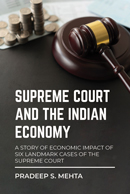




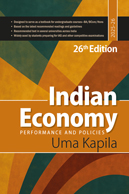
-web-194.jpg)
-front.jpg)
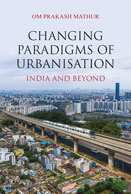








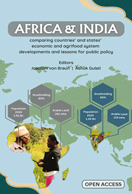
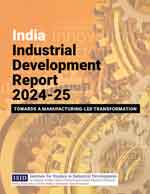
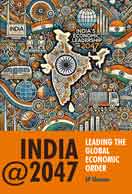
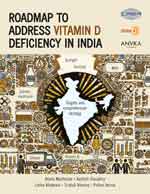
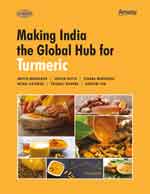
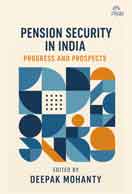
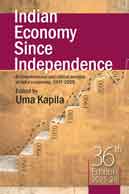
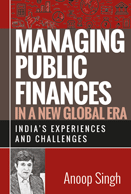
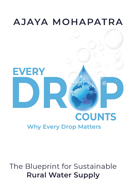
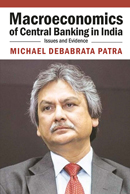
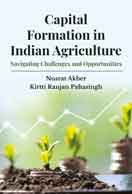









-COVER-web-194.jpg)





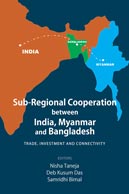






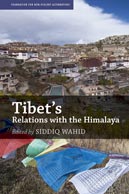



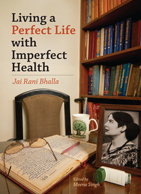













.jpg)






